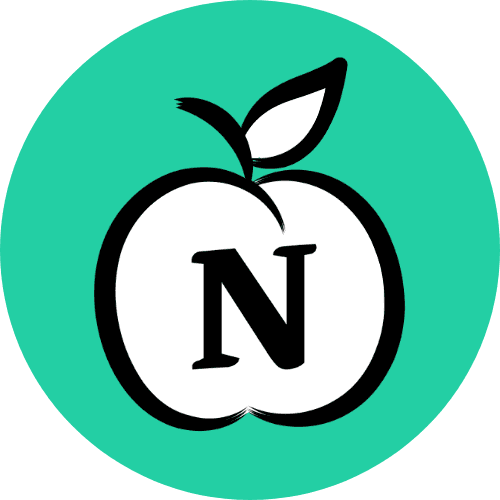

What You Really Learn from Practice Exams
What You Really Learn from Practice Exams
What You Really Learn from Practice Exams


Article by
Milo
ESL Content Coordinator & Educator
ESL Content Coordinator & Educator
All Posts
While practice tests are often viewed simply as tools for exam preparation, their impact goes beyond reviewing content and refining test-taking strategies. Regularly taking mock exams can strengthen skills that benefit both academic growth and professional development. In this article, we’ll uncover the lesser-known advantages of practice tests—such as sharpening focus, easing anxiety, fostering more effective study habits, and enhancing decision-making abilities.
While practice tests are often viewed simply as tools for exam preparation, their impact goes beyond reviewing content and refining test-taking strategies. Regularly taking mock exams can strengthen skills that benefit both academic growth and professional development. In this article, we’ll uncover the lesser-known advantages of practice tests—such as sharpening focus, easing anxiety, fostering more effective study habits, and enhancing decision-making abilities.
Free Grade Tracker
Track and calculate student grades easily in Notion. Get your free copy now!

Free Grade Tracker
Track and calculate student grades easily in Notion. Get your free copy now!

Free Grade Tracker
Track and calculate student grades easily in Notion. Get your free copy now!

The Lasting Impact of Practice Tests on Learning
Practice tests replicate the structure, content, and timing of real exams, making them powerful tools for assessing knowledge, identifying areas for improvement, and gaining comfort with exam settings.
For instance, if you're studying for the Test of Essential Academic Skills (TEAS), using a free TEAS 7 math prep resource allows you to work through 150 practice questions that closely match the actual test's format. These questions span all four sections—Reading, Math, Science, and English—providing a comprehensive review. But beyond helping you pass an exam, practice tests also offer broader benefits, such as those outlined below:

Embracing Mistakes as a Path to Progress
Practice tests foster a growth mindset by reinforcing the idea that mistakes are a natural part of learning. Rather than viewing incorrect answers as failures, students begin to see them as useful feedback. Analyzing results helps highlight areas that need improvement, shifting the focus toward continuous progress instead of perfection. With consistent practice, learners build resilience, becoming more confident in the face of challenges and less discouraged by setbacks.
Encouraging Smarter Study Habits
One of the biggest benefits of practice tests is their ability to quickly reveal gaps in understanding. Instead of spending time on topics they’ve already mastered, students can concentrate on the areas that need the most attention—making their study sessions more focused and effective.
Additionally, practice tests strengthen metacognitive skills by prompting learners to reflect on their approach to studying. By analyzing what strategies worked, where they struggled, and why certain errors occurred, students become more self-aware and flexible in how they learn. These habits promote independent thinking, better retention, and a mindset geared toward lifelong learning.
Building Time Management and Mental Endurance
Practice tests simulate real exam conditions, helping learners adapt to time constraints. They encourage quick, informed decision-making and teach students to allocate their time wisely across different sections—preventing them from lingering too long on any one question.
These tests also reinforce the importance of prioritization. Test-takers learn to identify which questions to tackle first and which to revisit later, helping them stay calm and maintain a steady pace under pressure. With repeated exposure, a strong sense of timing and pacing becomes second nature.
Furthermore, completing a full-length practice test demands sustained focus, mirroring the mental effort required on exam day. This repeated challenge helps strengthen concentration and builds mental stamina—enabling students to remain alert and composed from beginning to end.
Sharpening Critical Thinking and Problem-Solving Skills
Practice questions go beyond simple memorization—they often require students to apply concepts, interpret information, and analyze different scenarios. This shift encourages deeper thinking by pushing learners to connect ideas, recognize patterns, and draw logical conclusions, especially when facing unfamiliar problems.
By engaging with varied question types, students learn to approach challenges from different perspectives. They build the ability to think flexibly, weigh options, and make reasoned decisions—skills that are vital both in the classroom and in real-life problem-solving.
Easing Test Anxiety Through Familiarity
A key but often overlooked benefit of practice tests is their ability to ease test anxiety by creating a sense of familiarity. For many students, anxiety stems more from uncertainty about the test experience than from a lack of preparation. Regular exposure to timed, test-like settings helps remove that uncertainty.
As students grow more comfortable with the exam format, structure, and pressure, they gain a stronger sense of control. This feeling of preparedness promotes a calmer, more focused mindset when test day arrives.
Additionally, practice tests allow learners to observe their reactions under pressure. By identifying when they feel rushed or distracted, students can develop personal strategies to manage stress and remain composed—building test confidence over time.
Boosting Long-Term Memory with Spaced Practice
When practice tests are taken at regular intervals, they support memory retention through spaced repetition. This process strengthens learning by encouraging the brain to retrieve information multiple times, moving it from short-term to long-term memory.
Unlike passive review methods, taking practice tests reactivates knowledge in a meaningful way. Each attempt deepens understanding and reinforces what’s been learned, making it easier to recall information not just for upcoming exams, but for future academic or professional use.
Modern students can further enhance their results by using digital tools for practice tests to get instant feedback.
Conclusion: More Than Just Exam Prep
Practice tests do far more than prepare students for a single exam—they lay the groundwork for lifelong learning and personal development. Through consistent practice, learners gain more than subject knowledge; they build confidence, improve focus, enhance decision-making, and manage time and stress more effectively. These tests also foster self-awareness and intentional learning strategies, shaping students into adaptable, resilient thinkers ready to tackle future challenges.
To maximize the impact of these exams, consider implementing spaced repetition strategies in your classroom.
The Lasting Impact of Practice Tests on Learning
Practice tests replicate the structure, content, and timing of real exams, making them powerful tools for assessing knowledge, identifying areas for improvement, and gaining comfort with exam settings.
For instance, if you're studying for the Test of Essential Academic Skills (TEAS), using a free TEAS 7 math prep resource allows you to work through 150 practice questions that closely match the actual test's format. These questions span all four sections—Reading, Math, Science, and English—providing a comprehensive review. But beyond helping you pass an exam, practice tests also offer broader benefits, such as those outlined below:

Embracing Mistakes as a Path to Progress
Practice tests foster a growth mindset by reinforcing the idea that mistakes are a natural part of learning. Rather than viewing incorrect answers as failures, students begin to see them as useful feedback. Analyzing results helps highlight areas that need improvement, shifting the focus toward continuous progress instead of perfection. With consistent practice, learners build resilience, becoming more confident in the face of challenges and less discouraged by setbacks.
Encouraging Smarter Study Habits
One of the biggest benefits of practice tests is their ability to quickly reveal gaps in understanding. Instead of spending time on topics they’ve already mastered, students can concentrate on the areas that need the most attention—making their study sessions more focused and effective.
Additionally, practice tests strengthen metacognitive skills by prompting learners to reflect on their approach to studying. By analyzing what strategies worked, where they struggled, and why certain errors occurred, students become more self-aware and flexible in how they learn. These habits promote independent thinking, better retention, and a mindset geared toward lifelong learning.
Building Time Management and Mental Endurance
Practice tests simulate real exam conditions, helping learners adapt to time constraints. They encourage quick, informed decision-making and teach students to allocate their time wisely across different sections—preventing them from lingering too long on any one question.
These tests also reinforce the importance of prioritization. Test-takers learn to identify which questions to tackle first and which to revisit later, helping them stay calm and maintain a steady pace under pressure. With repeated exposure, a strong sense of timing and pacing becomes second nature.
Furthermore, completing a full-length practice test demands sustained focus, mirroring the mental effort required on exam day. This repeated challenge helps strengthen concentration and builds mental stamina—enabling students to remain alert and composed from beginning to end.
Sharpening Critical Thinking and Problem-Solving Skills
Practice questions go beyond simple memorization—they often require students to apply concepts, interpret information, and analyze different scenarios. This shift encourages deeper thinking by pushing learners to connect ideas, recognize patterns, and draw logical conclusions, especially when facing unfamiliar problems.
By engaging with varied question types, students learn to approach challenges from different perspectives. They build the ability to think flexibly, weigh options, and make reasoned decisions—skills that are vital both in the classroom and in real-life problem-solving.
Easing Test Anxiety Through Familiarity
A key but often overlooked benefit of practice tests is their ability to ease test anxiety by creating a sense of familiarity. For many students, anxiety stems more from uncertainty about the test experience than from a lack of preparation. Regular exposure to timed, test-like settings helps remove that uncertainty.
As students grow more comfortable with the exam format, structure, and pressure, they gain a stronger sense of control. This feeling of preparedness promotes a calmer, more focused mindset when test day arrives.
Additionally, practice tests allow learners to observe their reactions under pressure. By identifying when they feel rushed or distracted, students can develop personal strategies to manage stress and remain composed—building test confidence over time.
Boosting Long-Term Memory with Spaced Practice
When practice tests are taken at regular intervals, they support memory retention through spaced repetition. This process strengthens learning by encouraging the brain to retrieve information multiple times, moving it from short-term to long-term memory.
Unlike passive review methods, taking practice tests reactivates knowledge in a meaningful way. Each attempt deepens understanding and reinforces what’s been learned, making it easier to recall information not just for upcoming exams, but for future academic or professional use.
Modern students can further enhance their results by using digital tools for practice tests to get instant feedback.
Conclusion: More Than Just Exam Prep
Practice tests do far more than prepare students for a single exam—they lay the groundwork for lifelong learning and personal development. Through consistent practice, learners gain more than subject knowledge; they build confidence, improve focus, enhance decision-making, and manage time and stress more effectively. These tests also foster self-awareness and intentional learning strategies, shaping students into adaptable, resilient thinkers ready to tackle future challenges.
To maximize the impact of these exams, consider implementing spaced repetition strategies in your classroom.
Free Grade Tracker
Track and calculate student grades easily in Notion. Get your free copy now!

Free Grade Tracker
Track and calculate student grades easily in Notion. Get your free copy now!

Free Grade Tracker
Track and calculate student grades easily in Notion. Get your free copy now!

Table of Contents
Free Grade Tracker
Track and calculate student grades easily in Notion. Get your free copy now!
2025 Notion4Teachers. All Rights Reserved.
2025 Notion4Teachers. All Rights Reserved.
2025 Notion4Teachers. All Rights Reserved.
2025 Notion4Teachers. All Rights Reserved.







